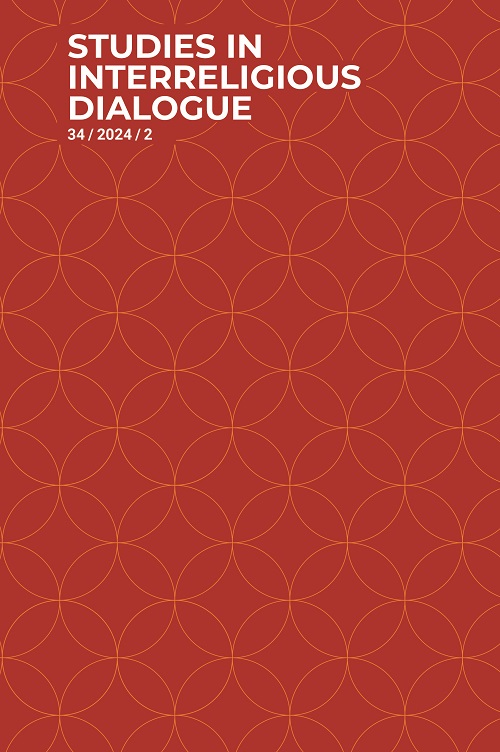 previous article in this issue previous article in this issue | next article in this issue  |

Preview first page |
Document Details : Title: Trends and Developments in Interreligious Dialogue Author(s): EVERS, Georg Journal: Studies in Interreligious Dialogue Volume: 20 Issue: 2 Date: 2010 Pages: 229-244 DOI: 10.2143/SID.20.2.2058669 Abstract : After briefly reflecting on the general state of interreligious dialogue, the article examines the phenomenon of a growing Islamophobia that can be observed in some European countries such as Switzerland (prohibition against building minarets) and Belgium and France (prohibition against wearing the burqa or niqab in public). In Malaysia, Muslims continue to object to the use of the tern Allah by Christians and other non-Muslims. In Germany, the nomination of the first Muslim minister in a state government spurred a discussion on the question if Muslims and Christians pray to the 'same God/Allah.' The condemnation of all forms of violence and terrorist activities in the name of Islam by the Council of Senior Ulema in Saudi Arabia is highlighted as a positive step against terrorist activities in the name of Islam worldwide. Some examples of Christian-Buddhist dialogue in the USA and in Europe are provided to show that the mutual relationship between these two religions is developing positively. The proposed resolutions by the Synod of Bishops for the Middle East in Rome are dealing with the problematical relationship between Christians and Muslims in the past and present and are stressing the necessity of continuing dialogue in spite of many obstacles. In Edinburgh, the participants of the conference held to celebrate the centenary of the conference held in 1910 made important statements regarding interreligious dialogue and Christian missionary activity. With his visit in the Jewish synagogue in Rome, Pope Benedict XVI expressed his will to continue Christian-Jewish dialogue and his intention to deepen the mutual understanding between the two religious traditions that have so much in common. Brief reference is made to the state of Christian-Muslim dialogue in Indonesia. In July 2010 the Muslim scholar Nasr Hamid Abu Zayd died and his contribution to the debate on interpreting the Qur’an is highlighted. On the occasion of the centenary of his birth, the life and the contribution to Christian-Hindu dialogue by Henri Le Saux, or Swami Abishiktananda, (1910-1973) is remembered. |
 |


